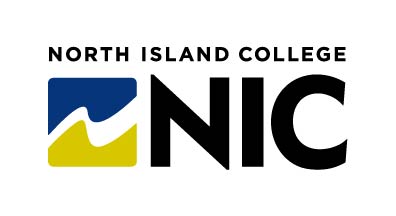Professional Portfolio and Other Documents:
In accordance with the Criminal Records Review Act, all students placed in practicum have a clearance of their Criminal Record on file with North Island College. Affiliates will receive a letter from the ECCE department verifying this information. Copying this letter to your student file satisfies your licensing requirements for recording this information, consistent with your Affiliation Agreement.
All students will arrive to practicum on the first day with their professional portfolio which includes:
- Resume
- 2 letters of reference
- First aid certificate (once completed)
- Immunization record
- Emergency contact information
- Oath of confidentiality form
- Digital images protocol form
Students in every practicum will also have a timesheet, an introduction page to post where families and staff can see it, and the assignment package they received from their instructor.
Program Learning Outcomes:
The NIC ECCE Department uses the following program learning outcomes to support students to be ready for their careers as an ECE after completion of the theoretical and practical courses in the program. Our commitment to the BC Early Learning Framework, multiple ways of knowing and doing, and the ECEBC Code of Ethics guide our pedagogy with students to achieve these outcomes:
- Engage in critical examination of a broad range of theoretical perspectives and shifting narratives in the field of Early Childhood Care and Education.
- Demonstrate knowledge of Indigenous ways of knowing and being, the impact of residential schools and ongoing colonization in educational spaces, and the Truth and Reconciliation calls to action that implicate and obligate Early Childhood Care and Educators in practice.
- Demonstrate humility, respect, responsibility and accountability as an early childhood educator in ways that pay attention to the situated contexts of children, families, educators and communities, and in accordance with the commitments of the Early Childhood Educators of BC Code of Ethics (2021).
- Use effective interpersonal skills including active listening, collaboration, self-awareness and conflict resolution to work collectively with others in joyful and sometimes difficult and unpredictable situations.
- Demonstrate awareness of the diversity of individuals, groups and land within our society, and the obligations of educators to advocate for equity, inclusion and social justice for all.
- Co-construct knowledge with children, engage in collaborative dialogue that invites multiple perspectives, and share stories of Early Childhood Care and Educators learning and thinking with families and communities.
- Apply a range of learning strategies, both in the classroom and in their work with children and families, including (but not limited to) use of technology , writing and oral communication skills, goal setting, and self care.
